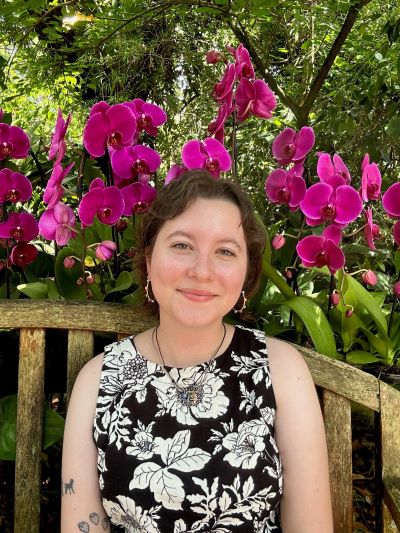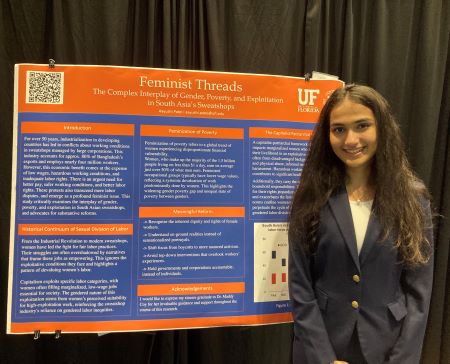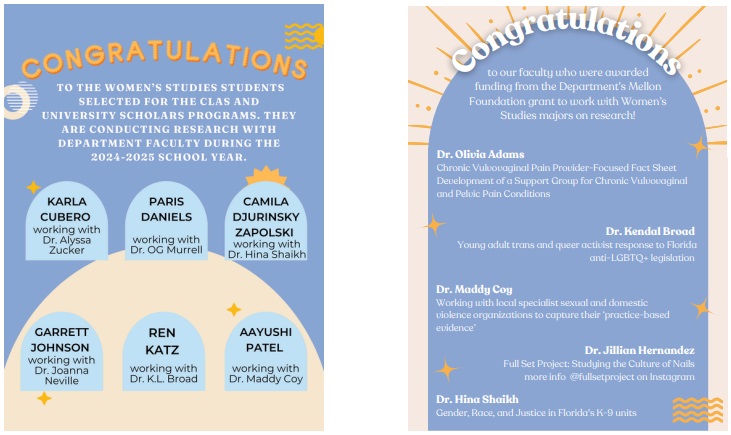Internship

This past summer, I was one of eight fellows in the Frank Karel Public Interest Communications Fellowship in Washington, D.C., where I interned for Mary’s Center in the Marketing and Communications department. Mary’s Center was started by a Colombian immigrant, Maria Gomez, as a Maternal and Child Care clinic for Latina women fleeing dangerous situations in the 1980s.
Since then, Mary’s Center has expanded to include various services in its Social Change Model, including access to bilingual education for better economic opportunities, and medical and social services, all under one roof. This model made me reflect on what I have learned from my Women’s Studies courses about health inequities and how to eliminate barriers to care. Through this fellowship, I learned the importance of storytelling and community building as vital components in increasing health equity.
My experience at Mary’s Center showed me the power of storytelling in inspiring action. People’s stories illustrate to the public why advocating for others is in their interest. As a Women’s Studies student, I learned that in supporting those most in need, we help everyone. During my time at Mary’s Center, I observed this lesson implemented through the various resources provided to support their participants and, in turn, their community.
Mary’s Center aims to inform and educate clients, potential donors, and supporters about the issues affecting this community and show how they can be part of the solution. We empower people to be the catalyst for change and part of the solution. Most of my work for the internship consisted of translating and creating social media content. We found that there is more engagement when followers see themselves authentically represented, which helps people feel included and educates them on available services.
One of the most impactful lessons I took away was from a conversation with Allyn Brooks-LaSure from the Robert Wood Johnson Foundation. He spoke about the importance of bringing your community into every room you enter. This ensures that your community’s needs are met and enriches the conversation with perspectives others might not have encountered before. It is about making sure everyone’s voice is heard, including yours.
Reflecting on this experience, I can say that people and their stories attracted me to public interest communications. When people come together to forge connections, they help individuals find community with others and advance efforts to make a difference.
Mentored research

Last spring, I enrolled in Capstone Seminar, where I dedicated myself to researching a full-length independent project. The seminar provided a structured environment where I could develop my research skills and synthesize knowledge I have gained throughout my Women’s Studies major. I presented a research poster on this project, Feminist Threads: The Complex Interplay of Gender, Poverty and Exploitation in South Asia’s Sweatshops, at the Fall 2024 Undergrad Research Symposium. I engaged in stimulating discussions with attendees from all disciplines who showed genuine interest in my work and gained experience in distilling complex information into an engaging and accessible format. Additionally, it reinforced the importance of effectively articulating research to a broader audience and provided valuable professional experience.
